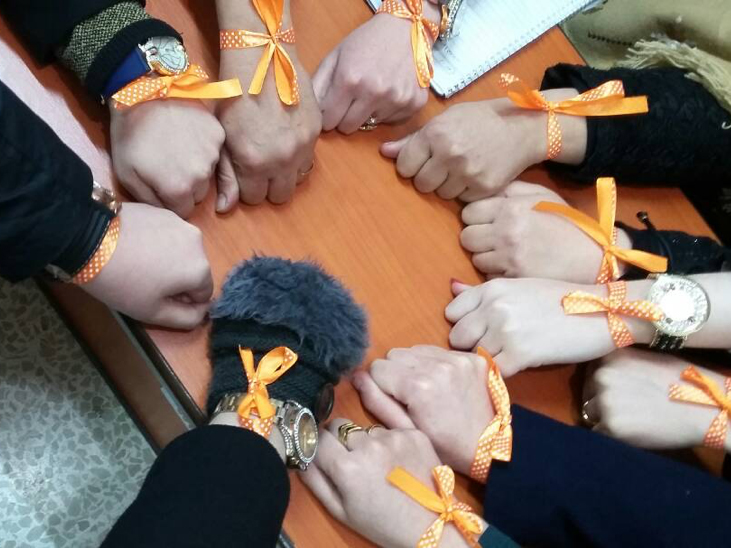The documentary film “Syrie, le cri étouffé” (Syria, the muffled cry) was recently released, telling the stories of Syrian women who were detained and violated by security forces. The film is particularly relevant at a time when the #MeToo movement has highlighted the prevalence of sexual harassment and the need for justice for victims. Sexual violence is used as a weapon of war, and women and girls who have been victimized by sexual violence in Syria and other countries are now breaking their silence.
Syrian women have shown their courage and are challenging the regime through their stories. Such new terms of female activism were evident during the first days of the Syrian uprising in March 2011, with scores of women participating in the protests. There were no limits to their activism in those days.
In addition to their activism during the revolution and in the humanitarian field, Syrian women are acting against gender-based violence more generally through the “16 Days” campaign. The 16 Days of Activism Against Gender-Based Violence bridges the 16 days between the International Day for the Elimination of Violence Against Women (25 November) and International Human Rights Day (10 December) to bring attention to violence against women and girls and the need for accountability and justice. The women’s demands are clear: they want justice for violations committed by individuals in the community and for systematic crimes committed by the Syrian government.
All that said, why do women in Syria—and in areas of conflict in general—become victims of sexual abuse? Dara Kay Cohen, a scholar at Harvard University, claims that “rape is a crime that allows men to inflict psychological harm on women and their communities.” In Syria in particular, a field research project by StartPoint, a Swedish NGO, found that “the regime’s agencies committed a series of organized and systematic violations that went beyond plain rape to cases of gang rape and sexual transgressions in front of male members of the family (brothers, husbands, and fathers).” Hiba Dabbagh, a former detainee of the Syrian regime, has documented a similar experience in her book, “Just Five Minutes: Nine Years in the Prisons of Syria,” in which a fellow detainee “told [her] that Omar Hamida undressed her, hung her, and made his men assault her in front of her husband before sending the latter to Palmyra prison to die there in the great massacre.”
In Syria, if crimes committed by the army are fully prosecuted then the future likelihood of similar crimes would presumably decrease. However, impunity encourages authorities to repeat their crimes. Impunity has, according to StartPoint, “formed a narrative for the Syrian collective unconsciousness of how the regime deals with women, whether during raids by security forces—supported by the army and militias—or in what awaits women in prisons and detention centres. Such a narrative is further backed by impunity for the perpetrators, whose victims’ families weren’t given the chance to hold them accountable for their crimes since this was the policy of both Assad the father and his son.”
Impunity cannot continue to run free. Syrian authorities have widely committed human rights violations, including sexual and gender-based violence, against human rights activists, civil society activists, and anyone involved in the political opposition. The international community must address such violations, as holding perpetrators accountable is a crucial step toward stopping such crimes in the future.
Originally Published on: Global Conversations
Source: http://www.munkgc.com/security/sexual-violence-as-a-weapon-how-syrian-women-are-fighting-against-gbv/

